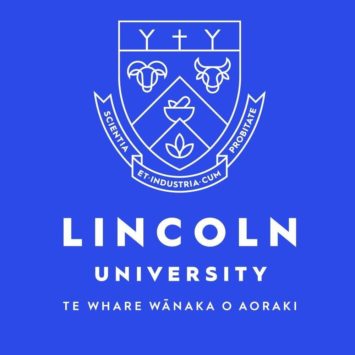Lincoln University is New Zealand’s specialist land-based university. As a publicly owned and operated university that exists and operates under New Zealand statute, we are 100% committed to transforming land, people and economies. Arguably no other New Zealand university has had such a direct link with the New Zealand economy, and with the people responsible for fuelling the economy for much of that time, than us.
History
Founded in 1878 as a School of Agriculture, the organisation was linked to Canterbury College, welcoming its first intake of students in 1880.
In 1896, with agriculture now well established as the mainstay of New Zealand’s exports, the School of Agriculture separated from Canterbury College and became Canterbury Agricultural College, with its own governing body and the ability to award degrees through the University of New Zealand. In 1961, the university was officially renamed Lincoln College, becoming a constituent college of the University of Canterbury. In 1990 Lincoln University formally separated from the University of Canterbury and became the self-governing national university that it is today.
From accounting to viticulture
In the same way as New Zealand economic base has broadened, our range of courses has also diversified to encompass land-based disciplines across the whole value chain. Today, Lincoln University’s specialist programmes attract students with a strong interest in science, the social sciences and/or commerce from throughout New Zealand and over 60 countries. Those courses include certificates, diplomas, bachelors and postgraduate qualifications in agriculture and agribusiness, commerce, environmental management and planning, landscape architecture, sport and recreation management, science, software and information technology, tourism and viticulture and oenology.
Research-led teaching
One of the key reasons for our success is that programmes combine robust theory with practical applications. Employers applaud the high levels of practicality structured into our courses while our teaching of the theory is highly informed by the world class research that Lincoln University is involved in. No other university in New Zealand has a higher rate of research dollars per full-time member of academic staff.
Lincoln University demonstrates that national and international research leadership in a range of areas. Specifically, the campus is home to the Agribusiness and Economics Research Unit (AERU), the Centre for Advanced Computational Solutions (CfACS), the Tourism, Recreation Research and Education Centre (TRREC), the Centre for Soil and Environmental Quality and the Isaac Centre for Nature Conservation.
Lincoln University is also home to the National Centre for Advanced Bio-Protection Technologies, one of only seven Government-sponsored Centres of Research Excellence in New Zealand and the only one in the South Island. The Centre is at the forefront of research in New Zealand on bio-protection and is a collaboration between Lincoln University, AgResearch, Crop and Food Research and Massey University.
It’s another example of how our specialist land-based university works with experts across a range of disciplines to advance sectoral and national competitiveness.
Internationally connected
Internationally Lincoln University has academic alliances with complementary institutions in Asia, the Middle East, Europe and the Americas. These alliances support academic relationships and enhance educational opportunities for teaching staff, students and those undertaking advanced research. One example is our connection with BOKU, the University of Natural Resources and Applied Life Sciences in Vienna, Austria. Together, our two universities teach a masters degree in natural resources management and ecological engineering, the only internationally taught masters degree in this field.











